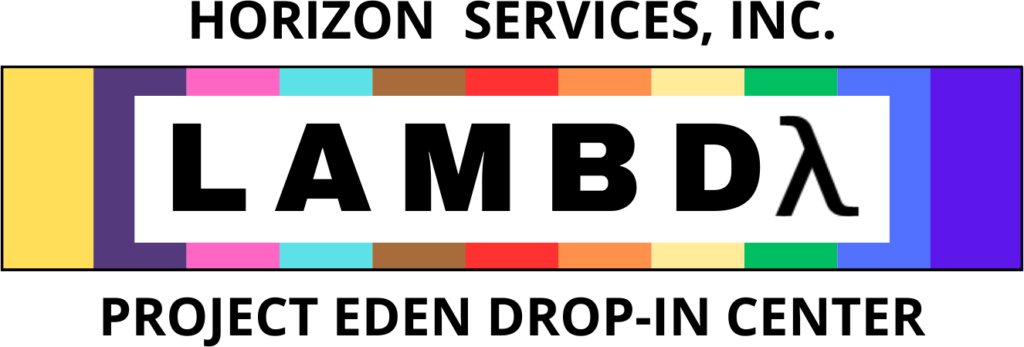Importance of San Mateo County Drug and Alcohol Programs
Substance use remains one of the leading issues in the United States. 57.8% of people aged 12 and older reported using drugs or alcohol in 2021. The reality is that substance use disorders affect many families across the country. San Mateo County drug and alcohol programs are available to help those in need and get their lives back on track.1

San Mateo County Drug and Alcohol Programs at Horizon Treatment Services
At Horizon Treatment Services, we provide detoxification programs for individuals with substance use and mental health disorders. Our highly qualified staff at Palm Avenue provides a safe and supportive environment with around-the-clock monitoring. We offer effective treatment and resources to help clients cope with their addictions.
By participating in our medical detoxification program, individuals can learn how to sustain a positive attitude and achieve long-term recovery. We encourage everyone to take advantage of the support and resources. San Mateo County drug and alcohol programs are powerful tools for personal growth and recovery.
Let’s explore San Mateo County drug and alcohol programs and how they can help.
What Are Drug and Alcohol Treatment Programs?
Drug and alcohol treatment programs help individuals overcome their addiction. They provide medical, psychological, and social support services. Individuals can discover the underlying causes of their substance use through education, holistic care, and support. They also learn how to manage their symptoms. Substance use treatment programs provide the necessary skills to achieve lasting sobriety.
San Mateo County drug and alcohol treatment programs differ based on length and level of care. Depending on the individual’s needs, each program is beneficial in its own way. Types of treatment programs are detailed below.2
Inpatient Programs
These programs provide the most intensive care. They require patients to stay at the facility during treatment. They offer 24/7 supervision for individuals with more severe conditions. Inpatient treatment programs are often short-term. They involve detox, counseling, medication management, and support groups. These work to help patients get back on their feet.
Residential Programs
Like inpatient care, residential programs require individuals to stay at the facility. But these treatment programs are less intensive and in a more home-based environment. They provide consistent, long-term support for ongoing recovery.
Partial Hospitalization Programs (PHP)
Partial hospitalization programs are typically used for individuals who do not need constant supervision in a hospital setting. Their treatment plans are comprehensive and structured. They require patients to attend six- to eight-hour-long sessions five to seven days a week.
Intensive Outpatient Programs (IOP)
Intensive outpatient programs provide the same structure as partial hospitalization programs but are less intensive. They are typically for patients who need more support than regular outpatient programs can provide.
Outpatient Programs
These programs are ideal for individuals with mild to moderate conditions. It’s great for those who need ongoing support. Patients have the most freedom and flexibility with outpatient treatment programs. Sessions typically occur one to three times per week.
Services Offered at San Mateo County Drug and Alcohol Programs
San Mateo County drug and alcohol programs offer a variety of services. These include detoxification, medication management, counseling, and aftercare services.
Detoxification
Detoxification is the process of eliminating drugs and alcohol from the body. Medical professionals often provide around-the-clock monitoring, nutritional support, and counseling. This is to ensure patients’ safety and health. They may also prescribe medication to ease withdrawal symptoms.
Withdrawal Symptoms
Withdrawal symptoms can range from mild to severe. This depends on the patient’s health, the type of substance that was used, and the addiction’s severity. Common withdrawal symptoms can include:
- Anxiety
- Insomnia
- Agitation
- Fatigue
- Cravings
- Muscle aches
- Sweating
With the help of San Mateo County drug and alcohol programs, you can safely manage these symptoms.
Medication Management
Medication can help individuals manage addiction symptoms, like withdrawal or cravings. Medical professionals also prescribe medication to ease symptoms from co-occurring mental health disorders.
Individual Counseling
Individual counseling helps patients better understand themselves and why they began using drugs. They learn how to identify and cope with risk factors that may cause relapse. They also develop skills to stay sober and reduce the risk of relapse.
Cognitive behavioral therapy (CBT), dialectical behavior therapy (DBT), motivational interviewing (MI), and contingency management are common therapeutic techniques used during individual counseling.
Group Counseling
Group counseling provides social support and reminds individuals that they are not alone. Patients can discuss their experiences, progress, and emotions with others in similar situations.
Aftercare Services
Aftercare services are a vital component of any drug and alcohol treatment program. It provides individuals with continued support and resources to help them maintain sobriety.
These programs include ongoing outpatient counseling, sober residences, and support groups. They also include education, life skills training, and employment help.
Similarities and Differences Between Drug and Alcohol Programs
Drug and alcohol treatment programs play a pivotal role in recovery. While their functions are similar, San Mateo County drug and alcohol programs have some slight differences.
Similarities
Drug and alcohol addictions fall under substance use disorders. This means their treatments often overlap. Both programs share the following similarities:
- Program type: Patients with drug and alcohol addictions can join similar programs. These include inpatient, residential, partial hospitalization, intensive outpatient, and outpatient programs.
- Treatment structure: Drug and alcohol programs offer detoxification, medication management, counseling, and aftercare.
- Individualized treatment plans: Both programs create tailored treatment plans. This ensures each patient receives the care they need. Everyone responds to treatment differently. This means that individualized plans are key to a successful recovery.
- Therapeutic techniques: CBT and 12-Step programs are some of the most common treatment methods for addiction.
Differences
The differences between drug and alcohol treatment programs include the following:
- Substance type: Drug programs can treat addictions to tobacco/nicotine, marijuana, prescription medication, opioids, methamphetamine, heroin, cocaine, stimulants, hallucinogens, and inhalants. In contrast, alcohol treatment programs focus on treating alcohol misuse and addiction.
- Treatment medication: Medications vary depending on the type of substance. For alcohol use disorder, the FDA approved acamprosate calcium, disulfiram, and naltrexone. For opioid use disorder, the FDA approved methadone, buprenorphine, and naltrexone.3
- Therapies: Different substances cause various side effects and symptoms. Each program may use a variety of therapies to accommodate these differences.
Different Treatment Methods in San Mateo County Drug and Alcohol Programs
Countless treatment methods are available for those struggling with addiction. These programs aim to help individuals achieve sobriety and improve well-being. Some of these programs are detailed below.
12-Step Programs
12-Step programs, such as Alcoholics Anonymous (AA) and Narcotics Anonymous (NA), are among the most common forms of treatment. 12-Step meetings provide individuals with support and encouragement.4
These programs offer a supportive environment for individuals to share their experiences. They can also receive guidance from their peers. 12-Step programs help individuals learn to live a more productive, healthier life without using drugs or alcohol.
Counseling
Counseling is an essential part of any treatment program. There are many different types of counseling, including:
- Behavioral therapy: This involves talking to a therapist. The goal is to identify and change negative and unwanted behaviors. Examples include CBT, DBT, and acceptance and commitment therapy (ACT).
- Group counseling: Group counseling engages many different people in each session. Different types of group treatment includes skills development, support, and interpersonal process groups.
- Contingency management: This counseling utilizes positive reinforcement. It rewards individuals for making positive behavioral changes.
- Motivational interviewing (MI): MI helps resolve ambivalence towards change. It aims to increase people’s motivation and take responsibility for their own recovery.
Holistic Treatment
Holistic treatment focuses on the whole person. It incorporates a variety of methods to heal mental, physical, social, emotional, and spiritual well-being.
For example, a holistic treatment plan could involve individual psychotherapy, group counseling, exercise, mindfulness, and art therapy.
Local San Mateo County Drug and Alcohol Programs
Horizon Treatment Services can help those struggling with substance use disorders. Our San Mateo County drug and alcohol treatment center at Palm Avenue offers detox and help with drug or alcohol substance use. Some other local programs include:
Behavioral Health and Recovery Services (BHRS)
The San Mateo County Behavioral Health and Recovery (BHRS) Program provides a comprehensive list of local inpatient and outpatient services and providers for mental health and substance use disorders. It also offers a drug and alcohol helpline and access call center available twenty-four-seven.
Integrated Medication-Assisted Treatment
San Mateo County Health utilizes medication-assisted treatment (MAT). This uses medication to make the detox process easier. This allows patients to focus their energy on making positive lifestyle changes. MAT is used alongside other forms of counseling.
Voices of Recovery
Voices of Recovery in San Mateo County is a peer-led organization. It works to help clients maintain long-term sobriety through wellness recovery action planning. They also provide employment and outreach opportunities.
Office of Consumer and Family Affairs (OCFA)
OCFA helps clients and their families navigate the BHRS system. It also puts them in touch with the support and resources they need to achieve long-term recovery.
12-Step Programs
12-Step programs in San Mateo County include Alcoholics Anonymous (AA), Narcotics Anonymous (NA), Cocaine Anonymous (CA), Al-Anon, and Alateen. These programs provide a meeting space for people struggling with similar addictions. They provide a support system for people who share common experiences.

San Mateo County Drug and Alcohol Programs at Horizon Treatment Services
If you or a loved one are looking for San Mateo County drug and alcohol programs, Horizon Treatment Services is here to help. Palm Avenue serves people from all walks of life. We treat substance use disorders and other co-occurring disorders. We also can help educate individuals on how Adverse Childhood Experiences may have affected their substance use later in life.
We understand the far-reaching effects of substance use, and we are here to help educate, support, and care for those who need assistance. The safety and recovery of our clients are our top priority. Our program is overseen by caring and compassionate medical professionals. Our goal is to provide the support and resources you need for every step of your recovery journey.
Contact Horizon Treatment Services Today
If you or a loved one are struggling with addiction, contact our team today. We’re happy to give you more information about our San Mateo County drug and alcohol programs.
Resources
1https://www.samhsa.gov/data/sites/default/files/reports/rpt39443/2021NSDUHFFRRev010323.pdf
2https://www.ncbi.nlm.nih.gov/books/NBK64815/








